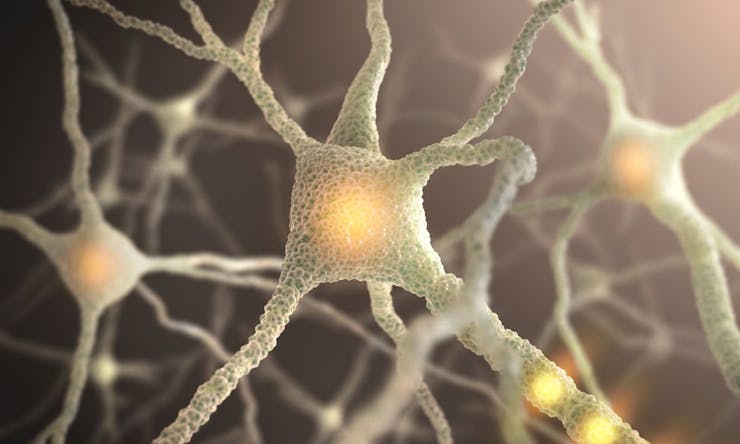This article is sponsored by PlusCBD Oil, a product line from CV Sciences (formerly CannaVest). CV Sciences is one of the leading suppliers and manufacturers of agricultural hemp-derived CBD bulk and finished products.
As we age, our cells’ ability to communicate with each other becomes impaired. Thus, the ability of the nervous system, endocrine system, and immune system to respond to problems and stay healthy can become compromised. In susceptible individuals, this can lead to chronic and debilitating diseases of the brain and nervous system. Today we’ll examine how cannabinoids such as CBD may promote wellness against inflammatory aging, or “inflammaging.”
What Is Inflammaging?
Inflammaging is the accumulation of low-grade inflammation throughout certain parts of the body. For example, it has been demonstrated that compared to their younger counterparts, older individuals have increased levels of pro-inflammatory cytokines (non-antibody proteins secreted by cells) that promote systemic inflammation within the body.
In response, the body activates a system to increase cortisol (an anti-inflammatory hormone). The problem, though, is that a continuous activation of these systems can lead to blood sugar imbalance and diabetes, immune system suppression, weight gain and obesity, gastrointestinal problems, cardiovascular disease, and even fertility problems. Moreover, although you’d expect that an immune system continuously operating on a higher level would be more effective, it’s actually detrimental. Instead, the low-grade continuous activation actually hinders the immune system’s ability to respond effectively to injuries or infection.
The Endocannabinoid System and Neurodegenerative Diseases
Enter the endocannabinoid system (ECS). Its overriding purpose is to regulate physiological functions and restore homeostasis (or a steady state) in cells and organs. Some of the most powerful evidence we have linking ECS to overall health comes from studies where scientists have blocked the two major endocannabinoid-degrading enzymes (fatty acid amide hydrolase [FAAH] and monoacylglycerol lipase [MAGL]). In a series of elegant studies, genetic or pharmacologic inhibition of FAAH and/or MAGL led to decreases in neuroinflammation and neurodegeneration, lower amyloid-beta levels (implicated in Parkinson’s), and improvements in long-term synaptic plasticity (the ability of synapses to strengthen or weaken over time in response to increases or decreases in their activity), spatial learning, and memory. Clear and predictable symptomatic relief from spasticity has also been also been noted in patients with multiple sclerosis.
CBD (cannabidiol), the cannabinoid devoid of psychotoxic effects, has attracted the interest of many neuroscientists because it may beneficially mitigate neurodegenerative pathways—a direct link to diseases such as Alzheimer’s, Parkinson’s, and Huntington’s. One of the mechanisms could involve selective activation of the nuclear receptor known as PPAR-gamma. In fact, recent studies in nerve cells have demonstrated that CBD increased the clearance rate of some amyloid precursor proteins (APP), which is known to form aggregates of amyloid beta in the brain as the basis of Alzheimer’s disease. In other words, old proteins that would normally be disposed of and recycled can build up and cause cellular dysfunction. Also, some of these studies in both cells and animal models have shown that these neurons increased their survival rates by restoring the delicate balance and homeostasis of which proteins get “tagged” as being damaged for further remodeling and repair. (Think of it as worn out tires or brake pads in your car that need replacing after certain amount of wear, or the wild bushes in your garden that need pruning from time to time.)
Another intriguing study used rats who were treated with CBD and overloaded with iron to cause the degenerative equivalent of Parkinson’s and Alzheimer’s disease. The rats were able to recover their memory deficits and showed a reduction in the cellular and mitochondrial damage that was typical of iron overloading.
In short, it appears that strategically keeping the endocannabinoid system in balance, potentially with the judicious use of phytocannabinoids, may support optimal neuronal health and wellness over time.
Learn more about your endocannabinoid system and find out whether it’s in balance.
References:
DiMarzo et al. Endocannabinoid signaling and the deteriorating brain. Nature Reviews (Neuroscience). 16: 30-42, 2014.
Scuderi C, Steardo L, Esposito G. Cannabidiol promotes amyloid precursor protein ubiquitination and reduction of beta amyloid expression in SHSY5YAPP+ cells through PPARγ involvement. Phytother Res. 2014 Jul;28(7):1007-13.
Esposito G, Scuderi C, Valenza M, Togna GI, Latina V, De Filippis D, Cipriano M, Carratù MR, Iuvone T, Steardo L. Cannabidiol reduces Aβ-induced neuroinflammation and promotes hippocampal neurogenesis through PPARγ involvement. PLoS One. 2011;6(12):e28668.
da Silva VK, de Freitas BS, da Silva Dornelles A, Nery LR, Falavigna L, Ferreira RD, Bogo MR, Hallak JE, Zuardi AW, Crippa JA, Schröder N. Cannabidiol normalizes caspase 3, synaptophysin, and mitochondrial fission protein DNM1L expression levels in rats with brain iron overload: implications for neuroprotection. Mol Neurobiol. 2014 Feb;49(1):222-33.






